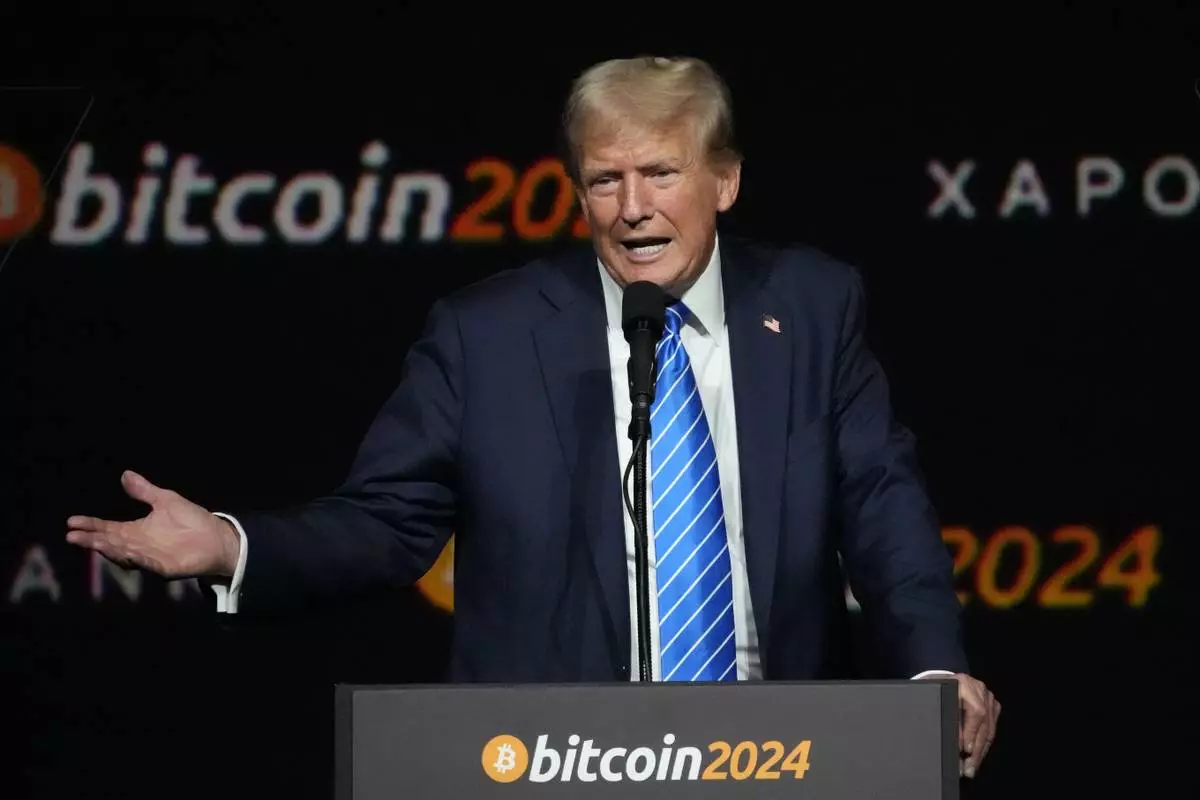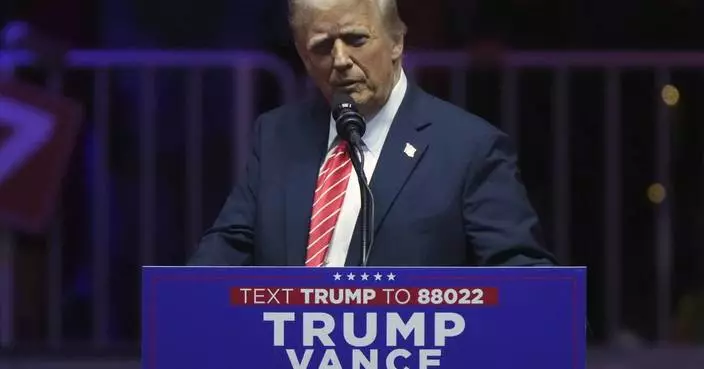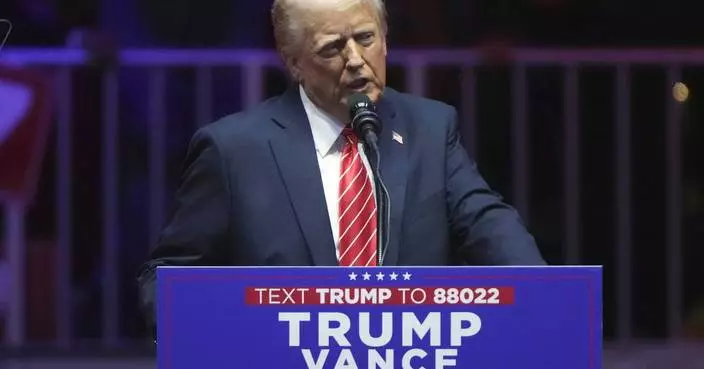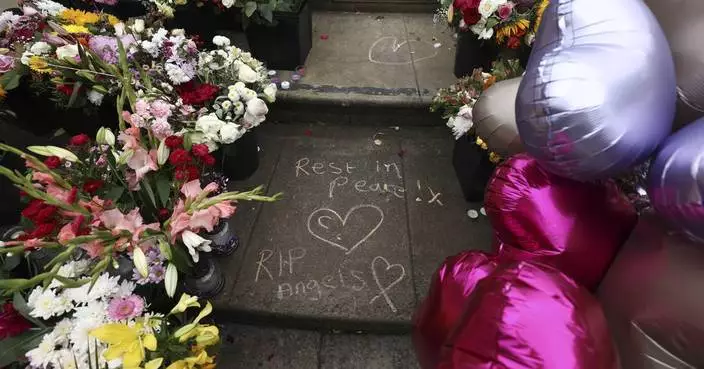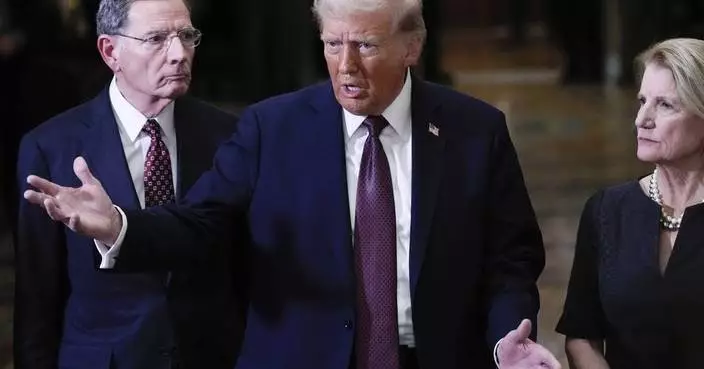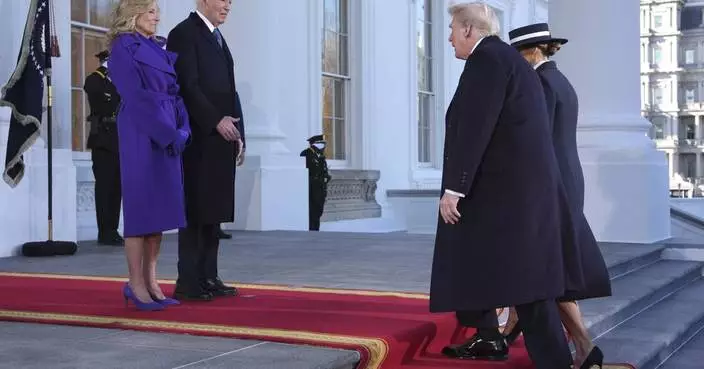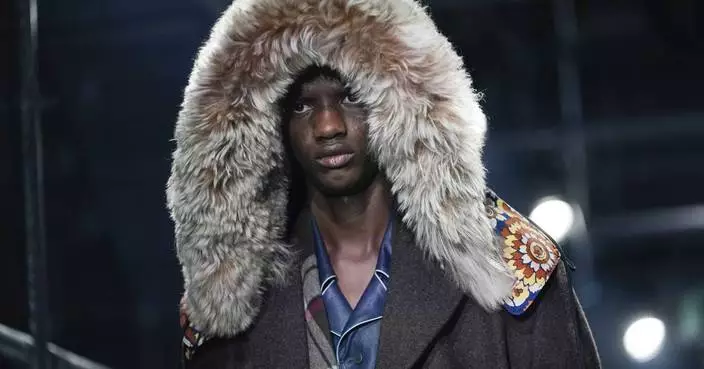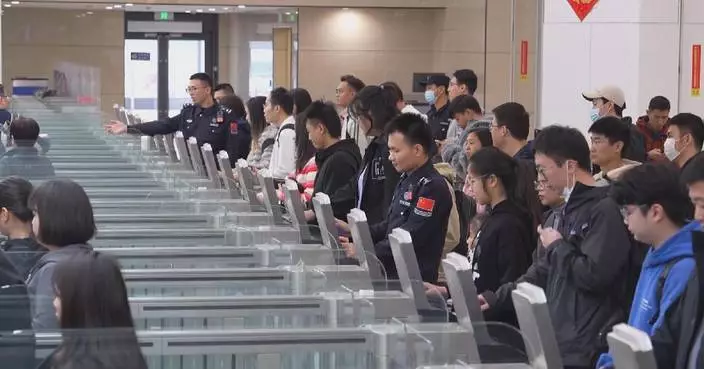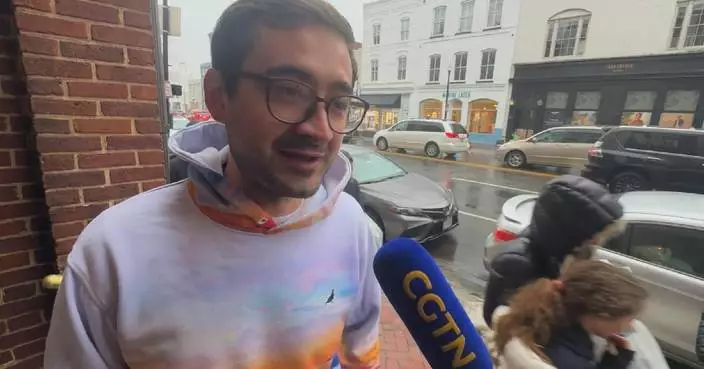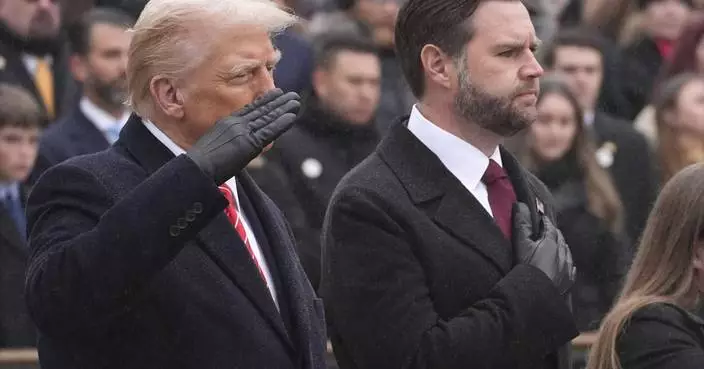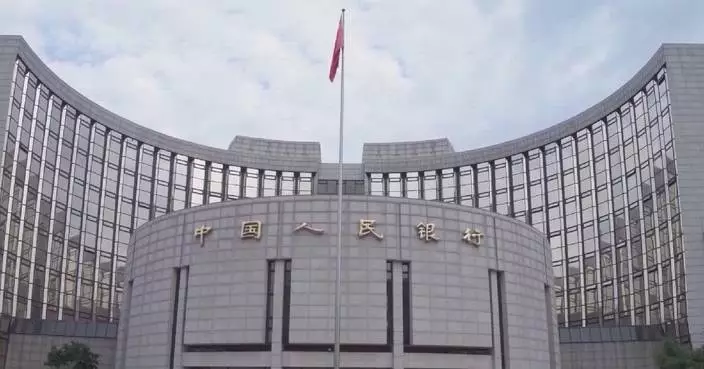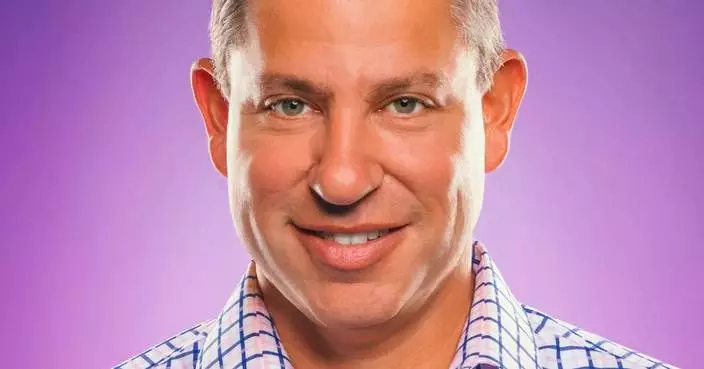PARIS (AP) — Not long after the Algerian boxer at the center of a gender misconceptions controversy won a gold medal at the Paris Olympics, Donald Trump pounced on the achievement at a rally more than 7,000 miles away in Bozeman, Montana.
The former president has used the saga surrounding Imane Khelif as part of the culture wars raging through America ahead of November's election. Khelif faced an extraordinary amount of scrutiny from world leaders, celebrities and social media warriors who questioned her eligibility or falsely claimed she was a man.
She won gold Friday night, not long before Trump's speech in Montana.
“I'd like to congratulate the young woman who transitioned from a man into a boxer. If you saw, he won, she won, the gold medal,” said Trump, who imitated the Italian boxer who quit her match against Khelif because she was overwhelmed.
Trump repeatedly incorrectly referred to Khelif as “he.”
There’s no such thing as an apolitical Olympics, and that was very clear from the dazzling opening ceremony in Paris that offended religious groups and also drew Trump criticism. And just like that, the two-week sporting spectacle was pulled into the political discourse pulsating throughout the United States.
It isn't a new phenomenon as the connection between politics and the Olympics have gone hand-in-hand dating back to when they resumed in the late 19th century - optimistically billed as a way for nations to compete without going to war.
“The Olympics are always pulled into political discourse because of the nature of the competition, in which nations compete against each other for dominance. This foundation in nationalism means that at its core, the Olympics is about nationalism first and athletics second,” said Zein Murib, associate professor of political science at Fordham University.
“Additionally, the Olympics have been used to condone or punish nations, as is the case with Germany in 1936, when the Olympics were held in Nazi Germany despite global protest that doing so would condone the regime, or 2024 when Russian athletes were excluded due to the invasion of Ukraine.”
For the Paris Games, the International Olympic Committee banned Russian athletes who are in the military or publicly supported the invasion of Ukraine. The IOC also blocked Russians from team sports, while track and field enforced its own blanket ban.
In gymnastics and weightlifting, Russia’s teams skipped qualifying events in protest of being forced to compete as neutrals or to undergo vetting, including checks of their social media.
There are 32 “neutral” athletes at these Games, 17 of whom previously represented Belarus and 15 representing Russia. They are competing under the status of “Individual Neutral Athletes" and were not permitted to participate in the opening ceremony. The Summer Games in Tokyo three years ago had more than 300 Russian athletes.
One political swipe against these Games came in the form of a video that portrayed Paris as a crime-ridden cesspool and mocked the Olympics. The video spread quickly on social media as 30,000 social media bots linked to a notorious Russian disinformation group. Within days, the video was available in 13 languages, thanks to quick translation by AI.
It was a way for Moscow to make its presence felt in Paris as groups linked to Russia’s government using online disinformation and state propaganda to attack France. It was evidence that global events like the Olympics are now high-profile targets for online disinformation and propaganda.
Murib said the political tension tied to this year’s Olympics is heightened because a coordinated group of “bad actors” has grown significantly and gained massive global reach over the past decade.
The tension was high going into the opening of the Games, as high-speed rail in France was disrupted by coordinated arson attacks. Even before the Olympics, French officials said they disrupted several sabotage plots, including arresting a Russian man who planned to destabilize the Games
“I think people on all sides of the political spectrum look to athletic competition as a barometer of the legitimacy of governing logics, and many will take wins — and losses — as lessons for the viability of democracy or authoritarianism,” Murib said. "We can see this at play in the ways that Trump immediately weighed in on Imane Khelif’s Olympic eligibility with the far right trope of keeping men out of women’s sports.”
Khelif filed a legal complaint in France for online harassment.
Despite the dramas, these Games will be remembered as an overwhelming success. Paris was on full display with breathtaking — and accessible by public transportation — venues, star performances by the athletes and spectators back for the first time since before the 2020 global pandemic.
NBC across all platforms set viewership records as millions tuned in daily despite declarations on social media that individuals were “ boycotting ” the Olympics either because of the “ woke " opening ceremony or Khelif.
Paris on Sunday night handed the Olympic flag off to Los Angeles Mayor Karen Bass, who on Monday flew it back to California for preparations ahead of the 2028 Games. Bass and LA 2028 chairman Casey Wasserman have acknowledged that the outcome of the November presidential election will have some effect on their Games, but aren't concerned the winner will create issues for them.
The LA 2028 organizers watched the Paris Games carefully and know they will be closely watched by the public — both to criticize and praise.
“More than anything, what I have learned here, and I give the French team a lot of credit for, is they were willing to do things differently and take chances,” Wasserman said. “It didn't mean they were all going to be perfect or work, and most of them did, and they've been spectacular. But they really thought outside the box, obviously starting with the opening ceremony."
Wasserman said the approach of Paris organizers has made him step back and ask “how can we do things differently and do things right for our city and our communities?”
“An Olympics are a daunting project, and you need to be willing to take chances and swings, big swings,” Wasserman added. “It's a good lesson for us to really take a very intentional, thoughtful way, to take some chances on things that we may not have.”
AP Summer Olympics: https://apnews.com/hub/2024-paris-olympic-games
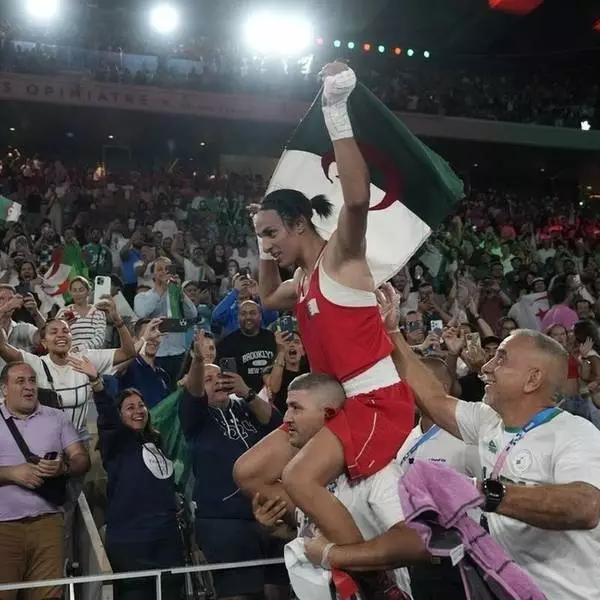
Subplots of the Paris Olympics became fodder for politicians, and that's not unusual in history
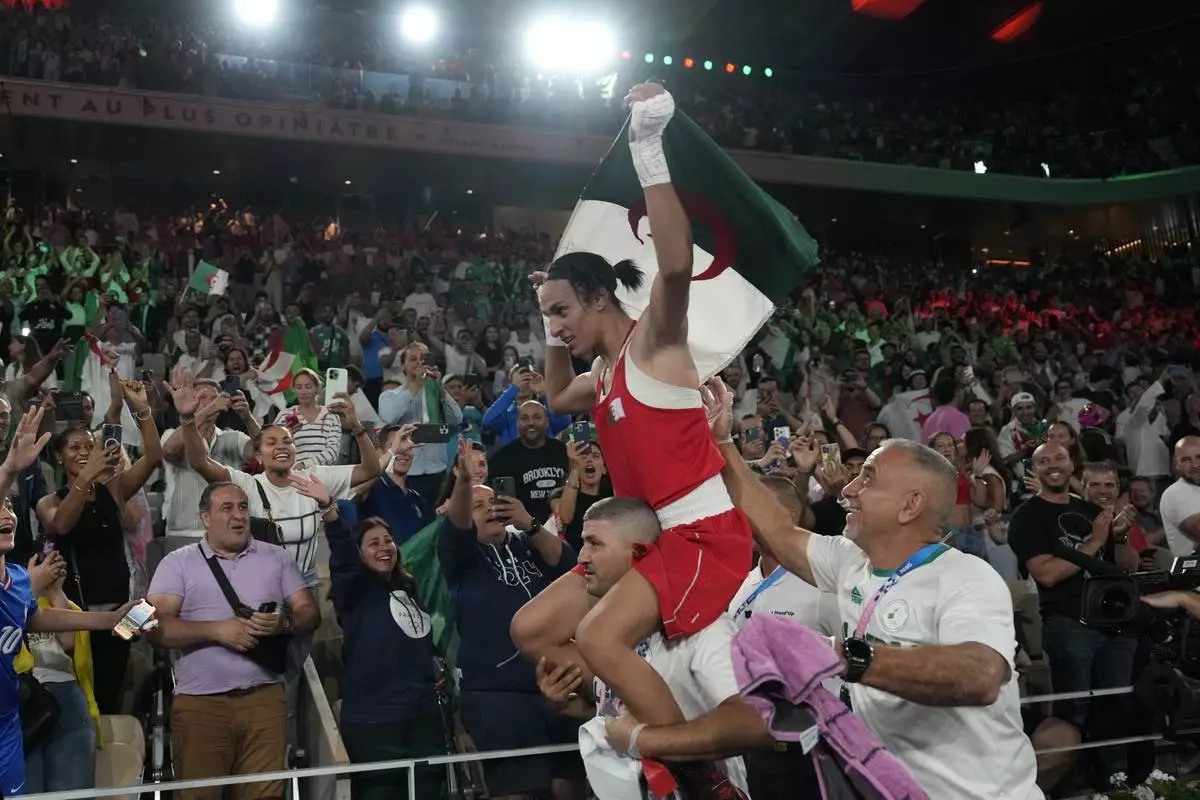
Algeria's Imane Khelif celebrates after defeating China's Yang Liu to win gold in their women's 66 kg final boxing match at the 2024 Summer Olympics, Friday, Aug. 9, 2024, in Paris, France. (AP Photo/Ariana Cubillos)

Subplots of the Paris Olympics became fodder for politicians, and that's not unusual in history



